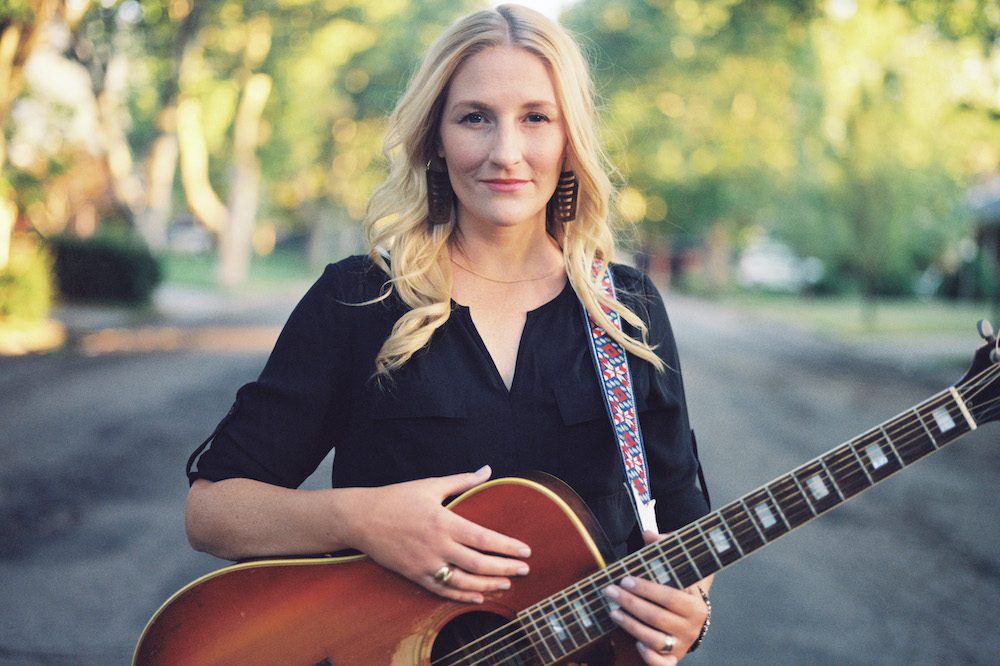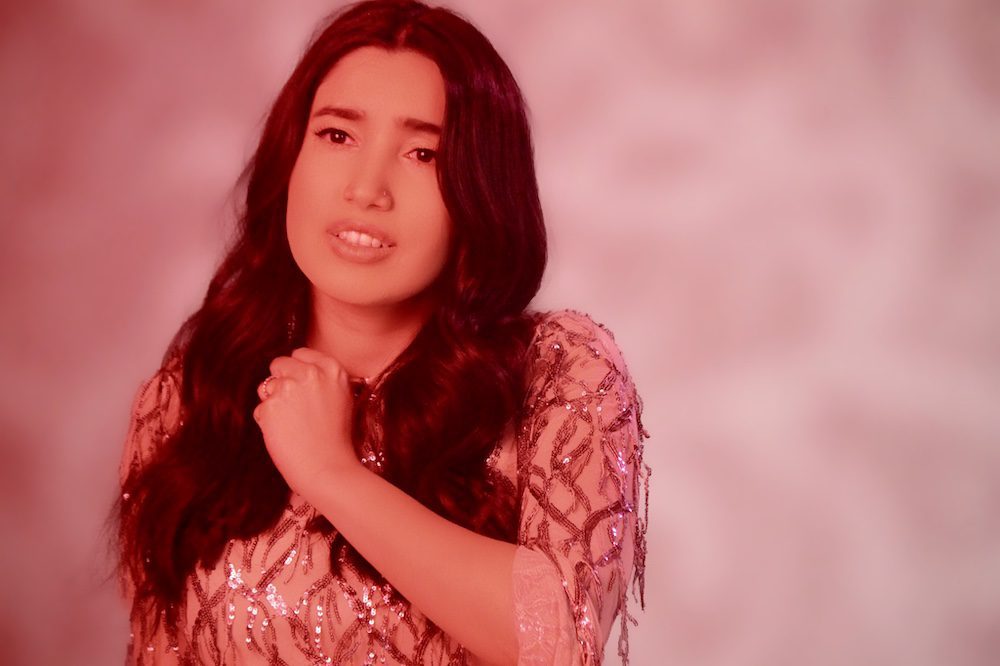Sarah Sample Lets The Wisdom of Nature Guide Her With Premiere of “Old Barn Owl”


When Wyoming-based folk singer-songwriter Sarah Sample wrote her song “Old Barn Owl” about a year ago, her goal was to bring peace both to herself and to her listeners. Little did she know how much the world would need that sense of calm when the song was released.
“It’s funny how songs do that sometimes,” she muses. “You write it in a different context, and it arrives almost exactly when you need it. Right now, we find ourselves in such a fog of anxiety and stress and sadness in the world, and for me, it’s always been really healing to get into nature.”
Sample wrote the song with her sister, Cate, while they were on a songwriting retreat in the Chihuahuan Desert in West Texas. They began to write the lyrics together using the “cutup method,” where they cut words that were meaningful to them out of books, then strung them together to create verses.
Then, one night, the two sisters were outside looking up at the full moon when they began singing the melody together and wrote the chorus. “It felt like any heaviness we had was lifting off our hearts, off our shoulders,” Sample remembers. “There’s something really healing about being in nature, being in the wilderness, and the song speaks to the fact that when you’re in the wilderness, there’s no judgment. I think that’s a really healing place to be: the idea of, just come as you are and you won’t be judged.”
She believes the cutup method gave the song a “mystical and poetic” feel. “It didn’t follow a linear storyline like some of my other songs,” she says.
Recorded live at June Audio Recording Studios in Provo, Utah, the single opens with earthy, gentle acoustic guitars by Sample and her long-time collaborator Paul Jacobsen. Then, she and Jacobsen sing together in the soothing chorus: “And the old barn owl calls, and everything’s all right/Maybe even me, tonight.” The song picks up energy and takes on a hopeful tone in the outro as producer Scott Wiley comes in with electric guitar.
“I think there’s something that’s really magical when you record a song live together in a room because you can feel that energy we can feel while tracking it together,” she says. “I would love if people would turn out the lights, maybe open a window, turn it up loud, and see how it feels.”
Sample began playing guitar in sixth grade and grew up playing Indigo Girls and Tracy Chapman songs before beginning to write her own music. She released her first album, Rotate, in 2003 and has released four more albums and an EP since.
Her last album, 2018’s Redwing, also featured songs co-written with her sister, who tends to focus on the lyrics while Sample focuses on the melody and music. “The beautiful part about writing songs with your sister is that you get to be authentic and true in your feedback, and we each bring different things to the table,” she says. “I don’t know why we resisted it for so long. It’s just the sibling rivalry that comes up. It’s been really wonderful to write songs together. She’s been my favorite songwriting partner.”
Before this year, all of Sample’s songs were released as part of larger collections, but she recently began focusing on singles in order to draw more attention to each individual track. “Sometimes, you put out a record, and there are a few singles that get the attention, and you have these other tracks that seem to fall through the cracks,” she says. “And so, as a songwriter, it feels good to put the full focus and the spotlight on one song.”
Her most recent release was a cover of Pearl Jam’s “Nothingman,” where her airy voice and piano give the classic an emotionally raw feel. “Pearl Jam is such an iconic band, and I think they influenced so many people,” she says. She also recently recorded a love song that will be released early next year.
Outside her musical career, Sample is a nurse who works with cancer patients and chemotherapy infusions, which she says has found its way into her music. “I’ve always wanted to write about the human experience — my own experience, but also just the story of people,” she says.
“I think that’s what folk music is. Folk music tells the story of the people, and so I’ve written several songs that are about death or about people dying, and I definitely feel like watching the grieving process with people I care about has been really educational for me as a person. And how to talk to people and how to take care of people — I think that helps me be a better songwriter and helps me be a better human.”
Follow Sarah Sample on Facebook and Instagram for ongoing updates.




